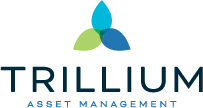Please try the following to find what you’re looking for:
- Check your spelling
- Try different words or word combinations (E.g. "fund form")

Responsible investing
Investing responsibly across our business
Each of our Asset Management and Wealth Management businesses has its own investment philosophy, and our investment teams exercise independence in determining their investment objectives.
Consideration of financially material environmental, social and governance (ESG) issues is integrated into investment analysis, decision making and ownership practices in the context of each of our businesses’ investment approaches and the needs of its clients.
Learn more about each boutiques' responsible investment approaches
|
|
Barrow Hanley believes integration of ESG risk factors aligns with the pursuit of superior risk-adjusted returns for the firm’s clients and their beneficiaries.
Barrow Hanley considers financially material ESG factors in its research and valuation analysis and monitors third-party ESG ratings as considerations for active management and shareholder engagement, and, where appropriate, better informs their dialogue with a company’s board and management and proxy voting decisions. The firm has developed a proprietary scoring system to assign an ESG Composite Score, built on ESG scores by the firm’s analysts, and incorporates third-party ESG scores with a robust ranking methodology.
As an active owner, Barrow Hanley believes there is value in partnering with investee companies to mitigate business risks and unlock shareholder value. This involves meeting with companies to discuss performance and conduct that will have a positive long-term effect on shareholder value, including proxy voting.
For more information visit: barrowhanley.com/barrow-hanley-responsible-investing
|
|
J O Hambro operates a multi-boutique structure, with 13 individual investment teams offering 21 investment strategies, covering global and regional equities. With no house view, fund managers are given full investment autonomy, subject to regulatory and contractual requirements.
The firm’s broad purpose is to deliver resilient, sustainable financial long-term returns for clients through active management that seeks to guide them through a world in constant flux, identifying structural trends and managing emerging risks, including those associated with environmental and social issues.
Stewardship and engagement with investment holdings is led by fund managers, with each investment team conducting their own analysis and engaging with the companies they hold or consider holding, according to their specific investment objectives.
J O Hambro have a dedicated Sustainable Investments team to support fund managers. They have developed a proprietary sustainability data, engagement and reporting platform called Affinity used by investment teams to enhance their analysis of the sustainability issues that may influence future returns and to record their consideration of these issues. The Sustainable Investments team also includes a data science expert that has developed a probabilistic greenhouse gas emissions modelling tool: the Horizon model, which assesses how likely a company is to reach the target that they have set.
In 2022, J O Hambro signed a multi-year partnership with the University of Exeter’s Global Systems Institute and Business School to develop further understanding on how the latest research on global systems risks related to climate change and sustainability considerations can be integrated into the generation of resilient shareholder returns.
For more information on J O Hambro’s approach to sustainable investment visit: johcm.com/uk/sustainability
|
|
The Perpetual investment teams believe that ESG risks and opportunities impact the long-term investment performance of their clients’ portfolios and that being active stewards of their client’s capital can improve the investment outcomes for clients, including in relation to ESG issues.
It is the Perpetual investment teams’ policy that investment managers should incorporate ESG issues into investment analysis and decision-making, where relevant and possible to each investment strategy and asset class. ESG issues will be relevant to all fundamental, active investment strategies where these issues are assessed by the Perpetual investment teams to be a factor that may impact the current or future financial performance of an investment.
There are certain investments where ESG considerations are not taken into account when deciding whether to select, retain or sell an investment. They may include derivatives and commodities.
Perpetual investment teams use a variety of tools to assess ESG issues as part of their investment processes.
Australian equities
The ESG workbook is used by Perpetual’s equity investment managers and analysts and draws on internal and external ESG research to highlight a company’s ESG risks and issues, where considered by the investment team to have the potential to impact the current or future financial performance of an investment. The ESG workbook helps to prioritise issues for engagement with investee company management.
Credit and fixed income
An ESG risk scoring process, which includes internal and external research on an issuer’s approach to managing ESG issues, allows Perpetual’s credit analysts to assess the ESG risks as part of their credit research on each corporate issuer and whether the issuer has any measures in place to address those risks. ESG risk scores are included in each corporate issuer credit profile and assists the portfolio manager to evaluate credit risk.
For more information visit: perpetual.com.au/asset-management/
|
|
Pendal’s responsible investment philosophy is based on three core beliefs:
- Attention to ESG issues contributes to better informed investment decisions and can improve the quality and consistency of long-term value creation.
- As an active manager, investment teams are well positioned to identify a full range of risks faced by the entities in which they invest, including ESG risks and opportunities.
- The investment teams’ actions and decisions can affect practices in the entities in which they invest, such as in the way the company manages its risks, or its impact upon the environment or the community. They have both a fiduciary duty and an interest in responsibly managing this influence.
Pendal Australian Equities
The Pendal Australian Equities team’s ESG integration framework is a standalone process that is designed to feed into the overarching investment decision making process to enhance risk-adjusted returns.
In undertaking a company assessment, the team takes the most material ESG factors and considers to what extent ESG information contributes to analysts’ views on, for instance, revenue forecasts, execution capability, competitive position, and the likelihood of an ESG issue materialising. The Pendal Australian Equities team’s assessment of materiality is informed by industry standards and Pendal analysts’ own insights. At the portfolio construction level, the portfolio manager is aware of the ESG issues at play in an analyst’s assessment of a company, through a centralised ESG integration database.
The team sets priorities for key ESG themes – such as climate change or diversity, equality and inclusion – that are assessed as being material at a portfolio level or to clients and which holdings have material exposure to those themes. From a bottom-up perspective, analysts also identify ESG issues, typically through their integration frameworks. These insights are brought into engagements for discussions with boards and management teams, where relevant.
Pendal Income and Fixed Interest
The primary consideration for the Pendal Income and Fixed Interest (I&FI) team’s approach to ESG integration in fixed income is to maximise risk-adjusted returns. The team views ESG integration as a way of understanding other risks and opportunities outside of traditional credit research and see ESG risks as having the potential to highlight future credit concerns. Different approaches are taken for Pendal’s sustainability-labelled income and fixed interest strategies.
The I&FI ESG integration process includes conducting research to understand ESG risks across different issuers, engagement with issuers, pricing ESG risks, and monitoring changes to issuers and broader risks.
Sustainable strategies
Pendal investment teams also manage several sustainable and impact strategies across equities and fixed income. These strategies have the additional focus of investing in companies, issuers or bonds that have positive ESG credentials or aim to achieve sustainability outcomes.
For more information on Pendal’s approach to responsible investment and the firm’s sustainable strategies visit: pendalgroup.com/about/investment-capabilities/responsible-investing
|
|
Regnan draws on more than 20 years of experience in sustainable investment, providing research, engagement and advisory services on the role of sustainability and governance issues in support of better financial outcomes. In 2020, they expanded into impact and thematic investment capabilities, established in J O Hambro and Pendal Australia under the Regnan brand. These teams take a resilient systems approach to help identify how best to support meaningful change by understanding the trajectory of sustainability challenges and where in the sustainability value-chain the most attractive opportunities can be found.
Regnan conducts corporate sustainability research, company engagement and resilient systems advocacy in collaboration with Regnan-branded funds, and other funds across the Group, as well as providing sustainability insights to support client needs. The engagement process includes research-based assessments to set change objectives; these objectives can be thematic or at a company level and aim to address risks and opportunities that are company specific and often portfolio-wide, such as climate transition.
Progress is tracked throughout the engagement, often over a number of years, identifying the impact achieved, risks mitigated or opportunities realised.
The Regnan Sustainable Value Assessment (SVA)* is a forward looking and bottom-up analysis of environmental and social issues, and how they are governed, undertaken by experienced specialists. Regnan methodologies have been designed to promote comprehensive evaluation of sustainability issues while also providing flexibility to incorporate company specific considerations.
Regnan’s ‘5 Dimensions of Impact’ assessment is a proprietary methodology for assessing green, social and sustainable bonds for the Pendal Income and Fixed Interest team’s Regnan Credit Impact Trust.
For more information visit: regnan.com
*Regnan’s Sustainability Value Assessment is undertaken for all Regnan Sustainable Water and Waste Fund and Regnan Global Mobility and Logistics Fund holdings, and on-request for the Regnan Global Equity Impact Solutions Fund holdings.
|
|
Trillium, headquartered in Boston, Massachusetts, has been focused solely on sustainable and responsible investing since 1982. It is the firm’s belief that a company’s commitment to implementing ESG principles is instrumental in creating distinct competitive advantage and building long-term value.
Trillium’s investment process integrates in-depth ESG research and analysis with fundamental financial due diligence to help identify the companies best positioned to deliver risk-adjusted, long-term outperformance.
It is fundamental to Trillium’s mission and fiduciary responsibility to engage with the companies held on behalf of its clients to press for positive change on ESG concerns or opportunities that Trillium believes can help protect or enhance shareholder value and/or environmental or social impact.
For more information on Trillium’s sustainable investment approach visit: www.trilliuminvest.com/esg/investment-approach
|
|
TSW considers ESG issues throughout the fundamental research process as they relate to risks and valuations. Companies or industries are not excluded from TSW’s investable universe based solely on ESG factors. As value investors, TSW’s fund managers may find opportunity in companies with addressable ESG issues that may have had a material impact on company valuation. Companies with negatively perceived ESG characteristics, those where management has made a commitment to improve ESG practices, or cases where the market has severely penalised the company and has failed to recognise positive change, may offer potential for attractive returns.
Company disclosures, including on ESG and other risk factors, are analysed during the fundamental review process and factored into the risk and reward outlook of the companies under consideration for investment. Where ESG considerations may be a material risk or a key catalyst, heightened scrutiny is required. In addition, sell-side research on ESG-related issues is also considered alongside proprietary research.
TSW engages regularly with the management teams to suggest and highlight areas of concern or improvement, including on ESG topics, if the investment team believes there is increased risk or potential positive change offering an opportunity for value creation for shareholders.
For more information visit: www.tswinvest.com
Responsible investment in Perpetual Wealth Management
Our Wealth Management business believes that ESG issues should be considered as part all investment analysis and decision making as the investment team believe it is a key component to building long-term sustainable value.
The Wealth Management investment team believes that the investment management industry can help promote more sustainable economic growth by investing in businesses and assets that consider social and environmental impacts as part of delivering value to investors. This should translate into more attractive risk-adjusted returns.
Where the Wealth Management investment team manages direct assets on behalf of clients, such as Australian Equities, ESG issues are considered alongside other factors when assessing and selecting securities. Investment teams consider a range of ESG issues, but the degree to which ESG issues influence security selection varies across strategies. For the Responsible Investment Direct Equities strategy, an ESG screening framework dictates the universe of investable options and our ESG model identifies companies that we believe are sustainable leaders within and across industries.
As a multi-manager, a significant portion of the Wealth Management team’s investments are managed on behalf of clients by external investment managers. The team’s manager selection process incorporates ESG considerations as part of the due diligence and monitoring of all investment managers.
For more information on the Wealth Management business’ approach to responsible investment, visit: perpetual.com.au/wealth-management/responsible-investing/
Offering sustainability-oriented products
Our Asset Management and Wealth Management businesses also offer sustainability-orientated funds to clients, ranging from those with norms-based and ESG screens to those with a sustainable thematic or impact focus.
These products provide solutions that meet the needs of clients interested in investing in a manner consistent with their sustainability preferences, or who want to use ESG information to impact investment performance.

Sustainability labelled funds
As of 30 June 2024, $16.9 billion of our assets under management in our Asset management business were in funds with an ESG, sustainability or impact label in their product name, or where sustainability is mentioned in the investment objective of the fund or is a stated client intent in the schedule of an Investment Management Account.
Select an Asset Management boutique below to visit their website and find out more about their sustainability-orientated strategies.

Find out more about how we consider climate as part of our investment processes.
This information is general information only and is not intended to provide you with financial advice or take into account your objectives, financial situation or needs. You should consider, with a financial adviser, whether the information is suitable for your circumstances. To the extent permitted by law, no liability is accepted for any loss or damage as a result of any reliance on this information.
Each of the funds referred to above are issued by Perpetual Investment Management Limited (PIML) ABN 18 000 866 535 AFSL 234426. The product disclosure statement (PDS) and Target Market Determination (TMD) for each of the funds should be considered before deciding whether to acquire or hold units in the respective fund. The PDS and TMD can be obtained by calling 1800 022 033 or visiting our website www.perpetual.com.au. To view the Perpetual Group's Financial Services Guide, please click here.
No company in the Perpetual Group (Perpetual Group means Perpetual Limited ABN 86 000 431 827 and its subsidiaries) guarantees the performance of any fund or the return of an investor's capital. Past performance is not indicative of future performance.
The information on this website is intended for Australian residents or citizens who are currently located in Australia, or where expressly indicated, New Zealand residents or citizens who are currently located in New Zealand only, and should not be relied on by residents or citizens of any other jurisdiction. By clicking the “Proceed” button below, you are agreeing to the Terms & Conditions of use.







